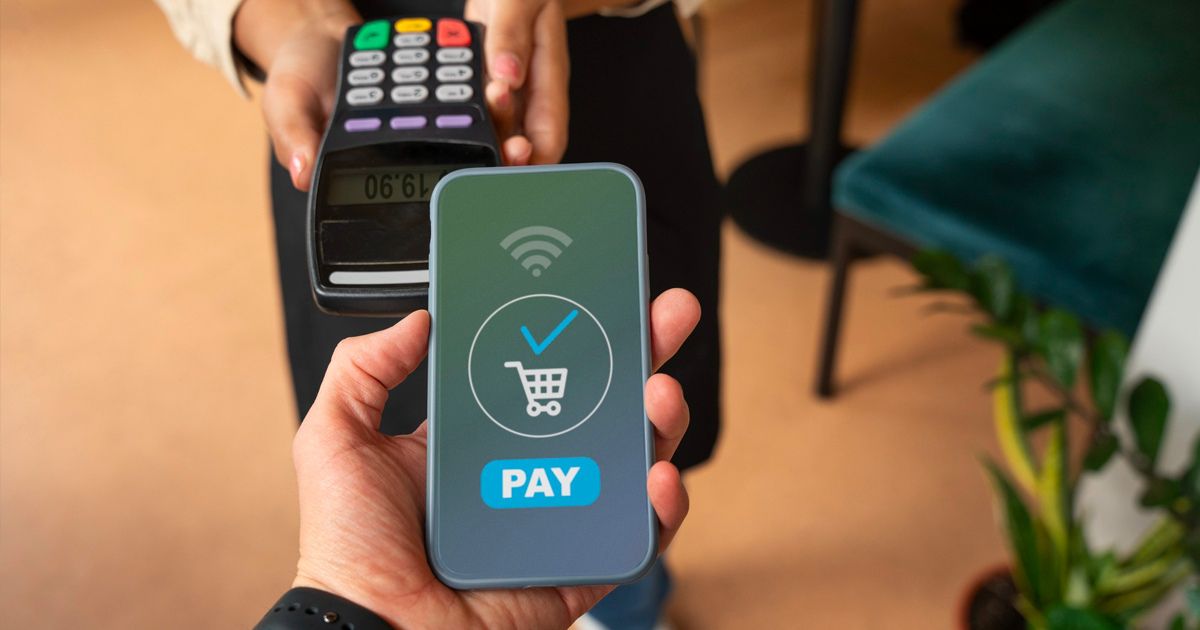
| January 1st, 2024 |
Evolving Transactions — Unveiling the Future of Payment Processing Technologies!
In the ever-evolving realm of finance, payment processing stands at the forefront of technological transformation. As we journey into an era defined by digital advancements and changing consumer preferences, the landscape of payment technologies is poised for a revolution. From blockchain to contactless payments, the future promises seamless, secure, and efficient transactions. In this exploration, we delve into the key trends and technologies shaping the future of payment processing.
1. Contactless Payments — The Rise of Tap-and-Go:
Contactless payments have gained significant momentum in recent years, offering consumers a swift and secure alternative to traditional payment methods. With the proliferation of Near Field Communication (NFC) technology, contactless cards and mobile payments have become ubiquitous. The future will likely see an expansion of this trend, with more businesses adopting contactless terminals and consumers embracing the convenience of tap-and-go transactions.
2. Cryptocurrencies and Blockchain — Revolutionizing Transactions:
The advent of cryptocurrencies, powered by blockchain technology, has disrupted the traditional financial landscape. Bitcoin, Ethereum, and other cryptocurrencies are gaining mainstream acceptance, and businesses are exploring ways to integrate these digital assets into their payment systems. Blockchain’s decentralized and secure nature holds the promise of reducing fraud, enhancing transparency, and revolutionizing cross-border transactions.
3. Biometric Authentication — A New Era of Security:
As concerns about cybersecurity and identity theft persist, biometric authentication is emerging as a key player in the future of payment processing. Fingerprint recognition, facial recognition, and even iris scans provide a highly secure and user-friendly method of verifying transactions. The integration of biometrics adds an extra layer of protection, making it more challenging for unauthorized individuals to access financial information.
4. Artificial Intelligence in Fraud Detection and Prevention —
Artificial Intelligence (AI) is reshaping the landscape of fraud detection and prevention in payment processing. Machine learning algorithms analyze vast amounts of transaction data to identify patterns indicative of fraudulent activity. The future holds the promise of even more sophisticated AI systems that can adapt to evolving threats in real time, providing unparalleled security for both consumers and businesses.
5. The Internet of Things (IoT) — Connected Transactions:
The Internet of Things (IoT) is ushering in an era where devices communicate seamlessly with each other. In the context of payment processing, this means that everyday objects – from smart refrigerators to wearable devices – can initiate transactions. Imagine your refrigerator restocking itself and automatically processing the payment. As IoT becomes more prevalent, the possibilities for connected transactions are boundless.
6. Decentralized Finance (DeFi) — Redefining Financial Services:
Decentralized Finance, or DeFi, represents a paradigm shift in the way financial services are delivered. Built on blockchain technology, DeFi eliminates the need for traditional intermediaries such as banks. Smart contracts, decentralized exchanges, and lending platforms are disrupting the traditional banking model, providing users with greater control over their financial transactions. The future of payment processing may see increased adoption of DeFi solutions for a more inclusive and decentralized financial ecosystem.
7. 5G Technology — Accelerating Transaction Speeds:
The rollout of 5G technology is set to transform the speed and reliability of data transmission. In the context of payment processing, this means faster and more responsive transactions. Reduced latency and increased bandwidth will enable real-time processing, making it possible for businesses to offer instantaneous payments and a smoother overall transaction experience.
8. Tokenization for Enhanced Security —
Tokenization involves replacing sensitive information, such as credit card numbers, with unique tokens. These tokens are meaningless to potential hackers, providing an additional layer of security for payment transactions. As the future unfolds, we can expect wider adoption of tokenization across various payment channels, bolstering security and instilling confidence in consumers.
9. Social Commerce and Integrated Payments —
The intersection of social media and e-commerce has given rise to social commerce, where users can discover and purchase products directly through social platforms. Integrated payment solutions within these platforms streamline the purchasing process, allowing users to make transactions without leaving their favorite social apps. The future of payment processing is intertwined with the seamless integration of transactions into social media and e-commerce experiences.
10. Regulatory Developments and Standardization —
As payment technologies evolve, regulatory bodies are working to establish frameworks that ensure security, privacy, and interoperability. Standardization of processes and protocols will play a crucial role in shaping the future of payment processing. Adherence to regulatory standards not only enhances security but also fosters trust among consumers and businesses alike.
Conclusion — Embracing a New Era of Transactions:
The future of payment processing technologies is marked by innovation, security, and unparalleled convenience. Contactless payments, blockchain, biometric authentication, AI, and other advancements are converging to redefine how we engage in financial transactions. As businesses and consumers adapt to these changes, the financial landscape will undoubtedly undergo a transformative shift, unlocking new possibilities and paving the way for a more connected and efficient global economy. The journey into the future of payment processing is not merely a technological evolution; it is a gateway to a new era of seamless, secure, and intelligent transactions.